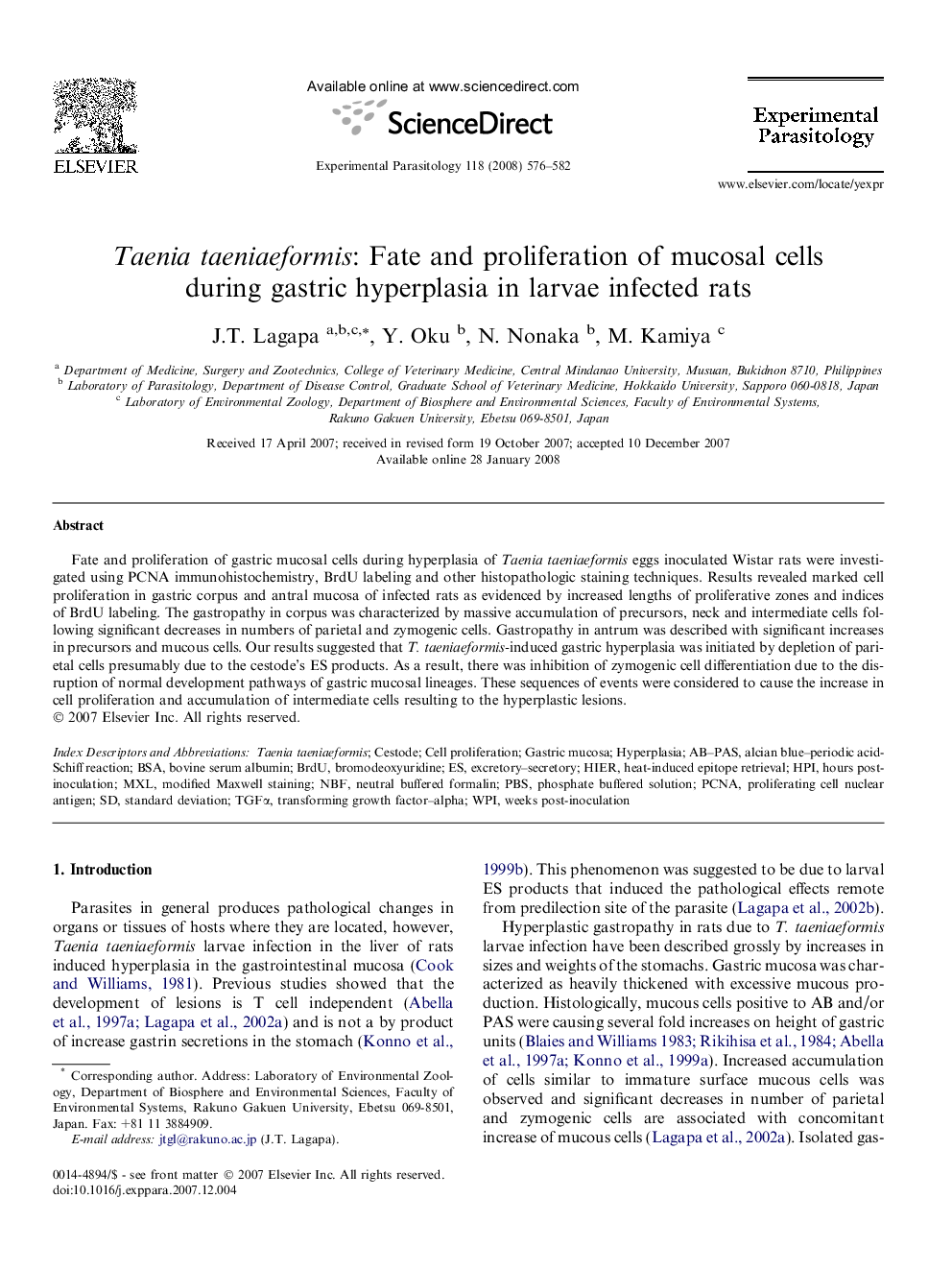| Article ID | Journal | Published Year | Pages | File Type |
|---|---|---|---|---|
| 4371473 | Experimental Parasitology | 2008 | 7 Pages |
Fate and proliferation of gastric mucosal cells during hyperplasia of Taenia taeniaeformis eggs inoculated Wistar rats were investigated using PCNA immunohistochemistry, BrdU labeling and other histopathologic staining techniques. Results revealed marked cell proliferation in gastric corpus and antral mucosa of infected rats as evidenced by increased lengths of proliferative zones and indices of BrdU labeling. The gastropathy in corpus was characterized by massive accumulation of precursors, neck and intermediate cells following significant decreases in numbers of parietal and zymogenic cells. Gastropathy in antrum was described with significant increases in precursors and mucous cells. Our results suggested that T. taeniaeformis-induced gastric hyperplasia was initiated by depletion of parietal cells presumably due to the cestode’s ES products. As a result, there was inhibition of zymogenic cell differentiation due to the disruption of normal development pathways of gastric mucosal lineages. These sequences of events were considered to cause the increase in cell proliferation and accumulation of intermediate cells resulting to the hyperplastic lesions.
